The International Solar Alliance (ISA) finally held its founding ceremony on Sunday, March 11, at the Rashtrapati Bhawan Cultural Centre in New Delhi, India, in the presence of Indian Prime Minister, Narendra Modi, French President, Emmanuel Macron, in addition to other Presidents, Vice Presidents, Prime Ministers, Deputy Prime Ministers and Ministers from over 45 countries and Heads of International Organizations.
Overall, the alliance aims to deploy over 1,000 GW of solar energy, via the mobilization of more than US$1 trillion, by 2030.
France on board
In 2015, when the alliance was first formed, France announced an investment of €300 million. It has now bumped that up by an extra €700 million, which will be released through loans and donations for solar projects in ISA member countries, by 2022.
Modi, in his speech, said the seeds of this historic day were sown during the 21st Conference of Parties (COP 21) in Paris, in November 2015, where France also played a crucial role. He mentioned that, out of 121 member countries, 61 have joined the alliance, while 32 have ratified the framework agreement.
“The presence of leaders from all over the world today is an expression of the fact that solar energy provides an effective and economical solution to complete the energy needs of humankind,” he stated.
He added that of India’s ambitious plan to install 100 GW of solar by 2022, 20 GW have been deployed thus far.
Financial assistance from India
Modi went on to say that aside from contributing to the ISA corpus fund, $62 million has gone towards the establishment of the ISA secretariat. Moreover, India will provide 500 solar energy training slots to ISA members, annually.
He also mentioned that, since its formation, the ISA has worked on 13 solar projects, worth $143 million, worldwide. Additionally, India has offered $1.4 billion in financial assistance to 27 other projects in 15 developing countries.
“We have set up a project preparation facility, which will provide consultancy support to partner countries to design bankable projects,” he said.
10 action points
Modi further outlined 10 action points, which will help the spread of solar energy:
- Ensure that better and more affordable solar technology is accessible to everyone;
- Increase the proportion of solar in the energy mix;
- Encourage innovation so that solar solutions can be provided for various needs;
- Provide finance for concessional financing and low risk for solar projects;
- The development of relevant regulatory aspects and standards;
- The development of consultancy support for bankable solar projects in developing countries;
- Emphasize greater inclusiveness and involvement in solar;
- Establish an extensive network of centers of excellence that keep in mind local circumstances and factors;
- View solar energy policy with the totality of development so that it gets more contribution from the achievement of Sustainable Development Goals (SDGs); and
- Make the ISA Secretariat strong and professional.
ISA-multinational banks partnership
The ISA and the African Development Bank (AfDb), the Asian Development Bank (ADB), the Asian Infrastructure Investment Bank (AIIB), the Green climate fund (GCF), and the New Development Bank (NDB) have also signed joint financial partnership declarations.
Prior to that, three partnerships were signed by the ISA with the World Bank (WB), the European Investment Bank (EIB) and the European Bank for Reconstruction and Development (EBRD), last year.
AfDB together with the ISA, aims to work on the mobilization of concessional financing through existing programs, most notably the Bank’s Sustainable Energy Fund for Africa and the Facility for Energy Inclusion.
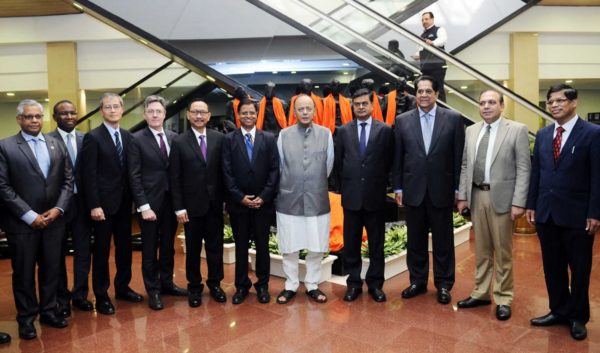
Image: Press Information Bureau, GoI
The International Energy Agency (IEA) and International Renewable Energy Agency (IRENA) have also signed a joint partnership declaration with the ISA.
Overall, with other banks too, the objective of the agreements is to deepen their support of renewable energy in developing countries.
ISA and ADB have joined forces for the promotion of solar energy in Asia and the Pacific, including solar power generation, solar based mini-grids, and transmission systems dedicated to integrating solar energy into grids, among others.
The Joint Declaration affirms the commitment of IRENA and the ISA to collaborate on advancing solar deployment and projects, by helping countries develop relevant policies and regulations, and through the implementation of IRENA initiatives, such as the Clean Energy Corridors and the SIDS Lighthouses.
IRENA’s project facilitation tools and platforms, like the Global Atlas for Renewable Energy, the Project Navigator, and the Sustainable Energy Marketplace, will also be made available to the ISA.
MoU signed between India and France
Overall, 14 Memorandums of Understanding (MoU) were signed between India and France in various sectors. Two of them directly relate to solar, renewable energy, and the climate change sector:
- Cooperation in the field of Environment – The MoU aims to establish a basis for the exchange of information between the governments and technical experts of the two countries in the field of environment and climate change. They committed to fully implement the Paris Agreement at COP24 and further on, under the United Nations Framework Convention on Climate Change (UNFCCC); and
- An MoU between National Institute of Solar Energy (NISE), Ministry of New & Renewable Energy and the National Solar Energy Institute (INES), France – Under this agreement both countries will work on projects in ISA member countries in the areas of solar energy (solar photovoltaic, storage technologies, etc.) through the transfer of technology and collaborative activities.
The two leaders confirmed that the strengthening of the India-French technological cooperation on renewable energy was a common priority for encouraging the emergence and dissemination of innovation in all the sectors. They stressed the importance of mobilizing public and private funds to support the development of solar energy. In this regard, they welcomed the establishment, within the ISA, of an international committee of chambers of industry, and the willingness of MEDEF, SER, FICCI and CII among others to join it.
Also yesterday, French Minister of State for Ecological and Inclusive Transition, Brune Poirson inaugurated a solar lab and solar energy training center at Pradhan Mantri Kaushal Vikas Kendra (PMKVK), at Mandir Marg, the Hindu reported.
New Delhi Municipal Council (NDMC) chairman, Naresh Kumar said the facility has the capacity to train 4,000 people every year. “As many as 30,000 youth will be imparted skilled development training in various fields by the end of 2022. Since its inception in October last year, over 1,920 students have been trained under the solar energy and health sector during the current session,” he said.
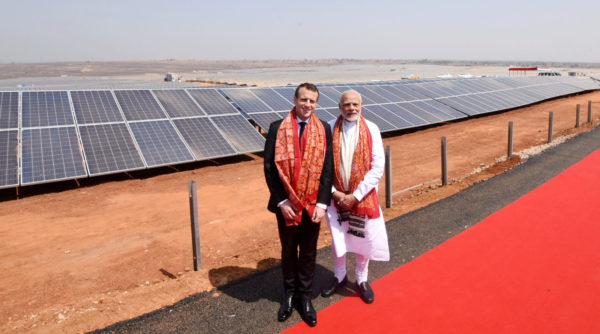
Image: Press Information Bureau, GoI
Macron inaugurated 101 MWp solar plant in Uttar Pradesh
In related news, France’s Macron, together with India’s Modi, today inaugurated a 101 MWp (75 MW) solar PV power plant in Mirzapur, Uttar Pradesh.
The PV plant is developed by the French energy firm ENGIE. ENGIE was awarded the Mirzapur solar project in May 2016 for a price of INR 4.43/kWh (~$0.068/kWh) and signed a 25-year power purchase agreement with Solar Energy Corporation of India (SECI) in June 2016.
This content is protected by copyright and may not be reused. If you want to cooperate with us and would like to reuse some of our content, please contact: editors@pv-magazine.com.
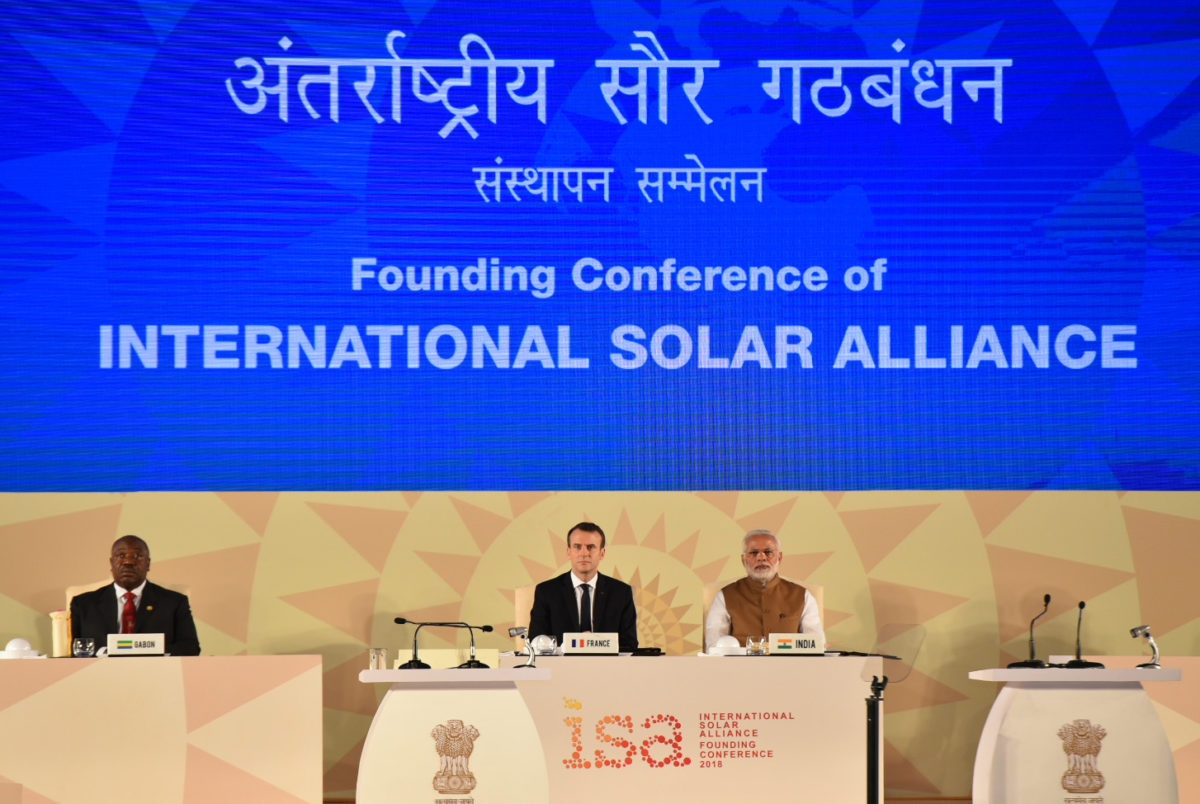
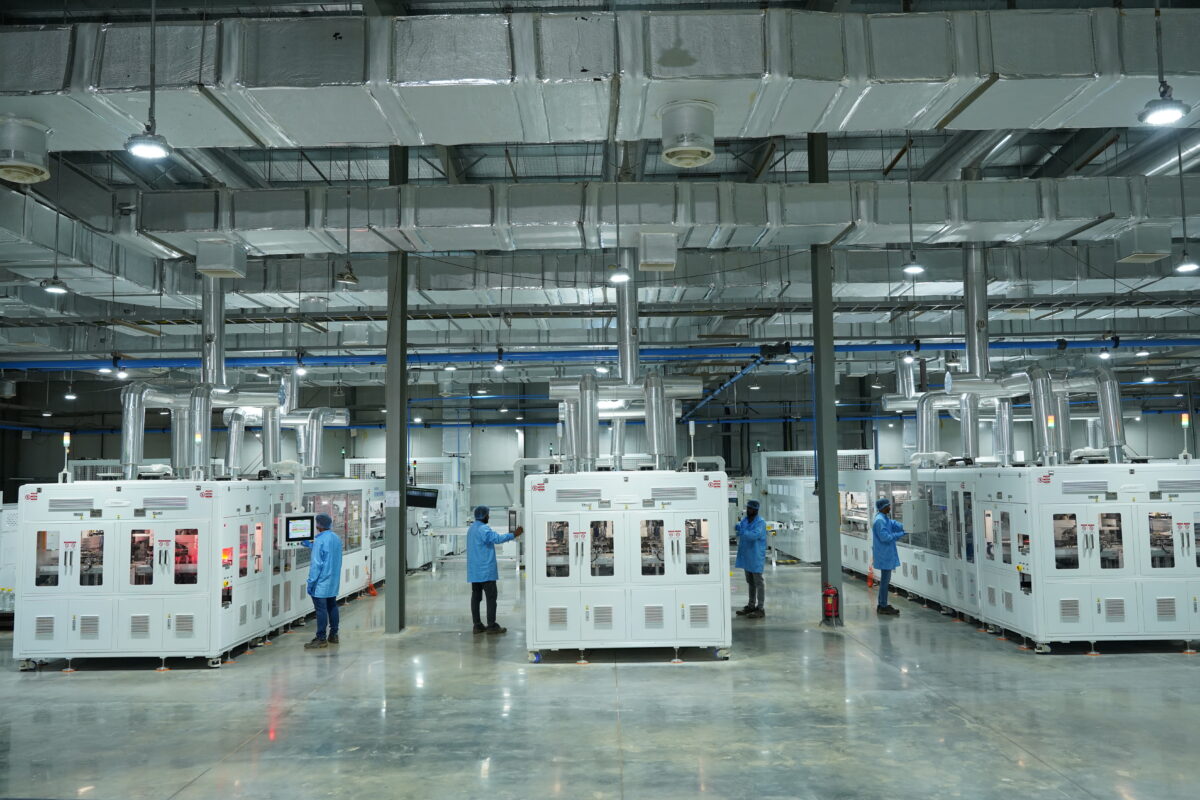

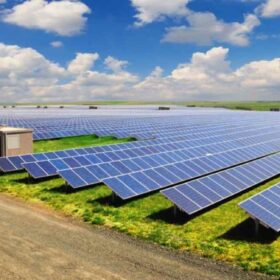

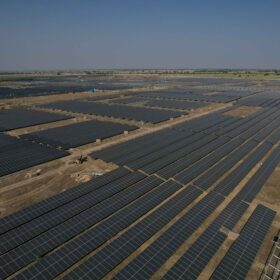
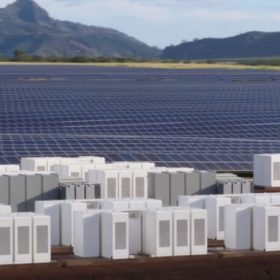

2 comments
By submitting this form you agree to pv magazine using your data for the purposes of publishing your comment.
Your personal data will only be disclosed or otherwise transmitted to third parties for the purposes of spam filtering or if this is necessary for technical maintenance of the website. Any other transfer to third parties will not take place unless this is justified on the basis of applicable data protection regulations or if pv magazine is legally obliged to do so.
You may revoke this consent at any time with effect for the future, in which case your personal data will be deleted immediately. Otherwise, your data will be deleted if pv magazine has processed your request or the purpose of data storage is fulfilled.
Further information on data privacy can be found in our Data Protection Policy.